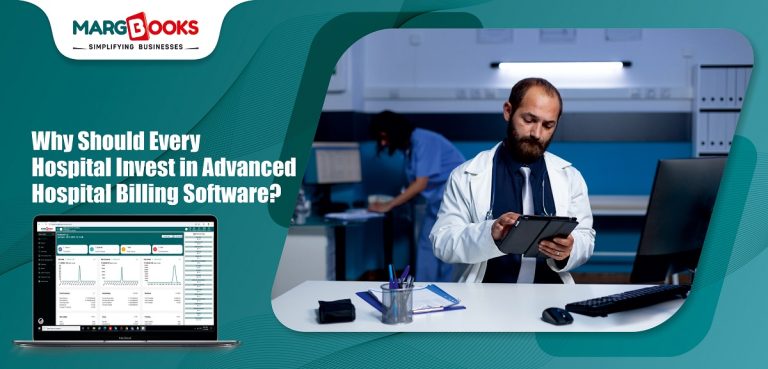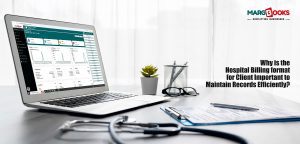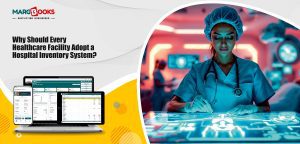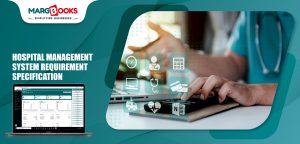In today’s fast-paced healthcare environment, managing billing efficiently is paramount. Hospitals face the challenge of processing a large volume of bills for various services, including inpatient and outpatient care, pharmacy purchases, and laboratory tests. For hospitals to streamline their operations, reduce errors, and ensure smooth revenue cycle management, investing in advanced hospital billing software has become not just a necessity, but a strategic move. In this blog, we will explore why every hospital should consider adopting such software and how it can bring significant improvements to operational efficiency and financial health.
The Growing Need for Advanced Hospital Billing Software
Hospitals today are more than just places for medical treatment—they are complex institutions that involve numerous departments, healthcare professionals, and services. Billing for these services, whether for consultations, surgeries, or pharmacy purchases, must be accurate, timely, and transparent. Traditional manual systems often lead to errors, delays, and increased administrative burden, ultimately affecting both the patient experience and hospital revenue.
Advanced hospital billing software is designed to automate and streamline the entire billing process, making it easier for hospitals to manage billing, track payments, and handle insurance claims.
Key Benefits of Advanced Hospital Billing Software
- Reduced Human Errors
Manual billing is prone to mistakes, such as data entry errors, incorrect patient information, and missed charges. With advanced hospital billing software, the risk of human error is greatly reduced. Automation ensures that the correct charges are applied, and billing discrepancies are minimized. - Faster Processing Time
The speed of billing is crucial for the hospital’s revenue cycle. Delays in generating bills can cause cash flow issues, while prolonged claim submission to insurers can delay reimbursements. Advanced hospital billing software speeds up these processes by automatically generating bills, sending them to insurance providers, and following up on claims in real time. - Improved Patient Experience
A seamless billing process enhances the patient’s experience. Patients are more likely to be satisfied when they receive clear, accurate, and timely invoices. Hospital billing software can generate easy-to-understand statements, including itemised bills that break down services, making it easier for patients to comprehend what they are being charged for. - Compliance and Regulatory Adherence
Hospitals in India must comply with a variety of local regulations and insurance requirements. Hospital billing software ensures that all charges align with the latest industry standards and regulatory frameworks. It can also generate reports that help hospitals demonstrate compliance with medical billing laws and health insurance mandates. - Real-time Reporting and Analytics
An advanced billing system provides real-time insights into the hospital’s financial health. Management can track outstanding payments, pending claims, and revenue generation from various departments, including the pharmacy. These insights help decision-makers optimise resource allocation, manage cash flow, and identify bottlenecks in the billing process.
Integrating Healthcare Store Software for Comprehensive Management
In a hospital, patients may not only need medical care but also access to a range of healthcare products like medicines, medical equipment, and other consumables. This requires a different approach to billing. Healthcare store software plays a critical role in automating the sale of healthcare products while seamlessly integrating with hospital billing systems.
Benefits of Healthcare Store Software:
- Efficient Inventory Management: Track the stock of medical products in real-time, ensuring timely restocking and preventing shortages.
- Seamless Billing Integration: Products sold through the healthcare store can be added directly to the patient’s bill, eliminating the need for manual entry and reducing errors.
- Patient Convenience: Patients can make all their payments in one go—whether for medical services or products—through a unified system.
This integration not only enhances patient satisfaction but also ensures that hospital revenue is accurately recorded from all departments, contributing to better financial health.
Pharmacy Billing Software: A Key Component for Hospitals
In hospitals, pharmacies are an essential part of patient care. Managing the pharmacy’s billing process effectively is critical to the hospital’s overall revenue cycle. Pharmacy billing software plays an important role in simplifying the process by automating drug sales and ensuring accurate pricing.
Key Advantages of Pharmacy Billing Software:
- Automated Billing for Medicines: The software automatically adds prescriptions to the patient’s billing system, ensuring there are no discrepancies in pricing or charges.
- Inventory Management: Pharmacy billing software helps track inventory levels in real time, preventing stock-outs of essential medicines and reducing wastage due to expired drugs.
- Insurance Claim Management: With the rise of health insurance in India, pharmacy billing software is equipped to handle insurance claims and reimbursements, ensuring hospitals get paid promptly.
Without a dedicated pharmacy billing system, manual errors in medication billing can lead to both financial losses and potential legal issues. Incorporating pharmacy billing software ensures hospitals maintain the integrity of their billing system across all departments.
How Margbooks Can Help Hospitals Achieve Better Billing
For hospitals looking to implement advanced billing systems, Margbooks provides an all-in-one solution that seamlessly integrates hospital billing, healthcare store software, and pharmacy billing software. Margbooks simplifies billing and offers powerful features such as:
- Customised Billing Solutions: Margbooks allows hospitals to tailor billing processes to meet their unique needs, whether they are generating bills for inpatient services, outpatient consultations, or pharmacy purchases.
- Real-time Analytics: The software provides real-time reporting, helping hospital management stay on top of their financial health.
- Multi-department Integration: With Margbooks, billing for multiple departments—medical services, pharmacy, healthcare store—can be integrated into one unified system, making it easier for hospitals to manage their finances.
- Easy-to-use Interface: Margbooks is designed to be intuitive, reducing the learning curve for staff and ensuring smooth adoption of the software.
Investing in Margbooks means adopting a solution that helps hospitals reduce errors, speed up billing processes, and improve patient satisfaction.
Conclusion
In the modern healthcare environment, efficiency, accuracy, and timely payments are essential for hospital success. Hospital billing software is no longer a luxury—it’s a necessity. By investing in advanced billing solutions, hospitals can reduce human errors, streamline operations, and enhance patient satisfaction.
Moreover, integrating healthcare store software and pharmacy billing software ensures that the hospital can manage all aspects of billing under one unified system. With the right technology, such as Margbooks, hospitals can stay ahead in a competitive healthcare landscape, improve their revenue cycle, and provide better care to their patients.
In conclusion, hospitals that embrace advanced billing systems are not just investing in technology—they’re investing in their future success.




